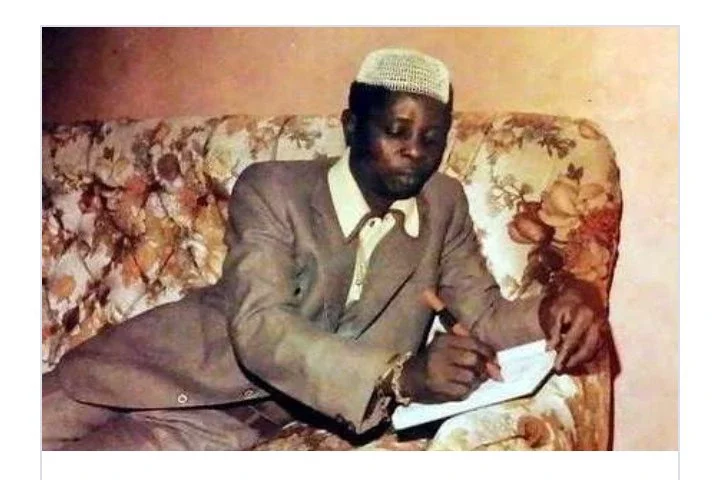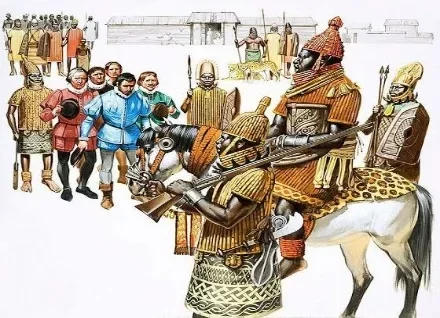
The late Ayinla Waheed Yusuf, popularly known as Ayinla Omowura, remains one of the most original and influential Yoruba musicians in post- colonial Nigeria. Born in 1933, Omowura' s music, deeply rooted in Apala, resonated widely in South- West Nigeria during the 1970s. His unique sound and lyrical genius earned him a cult following.
Tragically, at the height of his career, he was killed in a brawl by his band manager, Fatai Bayewumi, in Abeokuta, Ogun State, in 1980. Over four decades after his untimely death, his lead drummer and band co- founder, Alhaji Abdul- Rahman Adewole Alao, also known as Adewole Onilu- Ola, reminisced about their journey together. Now 92 years old, Adewole shares insights into the life and legacy of the enigmatic musician, whose influence still looms large.
Adewole discovered Omowura' s talent when the latter was a backup singer. Adewole, already a renowned Apala drummer, sought a lead vocalist whose voice complemented his unique beats. After encountering Omowura at performances, Adewole convinced him to join his band.
Their collaboration marked the beginning of a musical revolution in Apala, with Omowura' s vocal prowess blending seamlessly with Adewole' s drumming.
Omowura' s music stood out for its deep connection to Yoruba traditions, incorporating everyday realities and addressing social issues. Adewole credits their shared efforts and divine blessings for their success, which elevated them to the top of Nigeria' s music scene, surpassing even legends like Ebenezer Obey and King Sunny Ade in popularity during their prime.
Omowura was widely regarded as a lyrical genius, but his personality was a mix of contradictions. While he was deeply talented and charismatic, he was also known for his love of women, alcohol, and occasional confrontations. According to Adewole, Omowura attracted many female admirers, a common phenomenon among musicians.
However, Adewole insists Omowura was disciplined and did not indulge excessively in these distractions.
Despite his fame, Omowura was not immune to conflicts.
A leadership crisis once created a rift between him and Adewole. The band briefly disbanded when a foreign producer insisted that Omowura, as the lead singer, be named the band' s leader. Money and power strained their relationship, but intervention by community stakeholders reconciled the duo. Adewole reflects that their bond remained inseparable until Omowura' s death.
Omowura' s death remains a dark chapter in Nigerian music history. Known for his strong- willed nature, Omowura reportedly foresaw his death. During a concert in Ijebu, he remarked that someone close to him might betray him, akin to the Biblical story of Jesus. He even identified his manager, Bayewumi, as a potential betrayer, though the manager vehemently denied it.
The fateful altercation that ended Omowura' s life allegedly stemmed from a dispute over a motorcycle and a woman. Bayewumi struck Omowura with a glass cup, causing fatal injuries. Bayewumi was later convicted and executed for the crime.
Omowura' s impact on Apala music and Yoruba culture remains profound. His songs, often laced with social commentary, continue to inspire generations. Adewole laments that the band' s cohesion and success died with Omowura. Although they tried to sustain the legacy by appointing Omowura' s brother Dauda as the band leader, the band eventually dissolved.
Adewole also dispels misconceptions about Omowura' s lifestyle, including claims that he was a heavy drinker or smoked marijuana. He describes Omowura as a man of discipline, who only drank gin occasionally to warm up before performances.
Adewole feels the government has neglected the surviving members of Omowura' s band, despite their contributions to Nigerian music. He appeals for support to improve their living conditions, emphasizing their role in preserving the country' s cultural heritage.
While Omowura is long gone, his memory lives on through his music and the annual prayers organized by his family. His story is a poignant reminder of the brilliance and complexity of one of Nigeria' s most legendary musicians.
















Comments